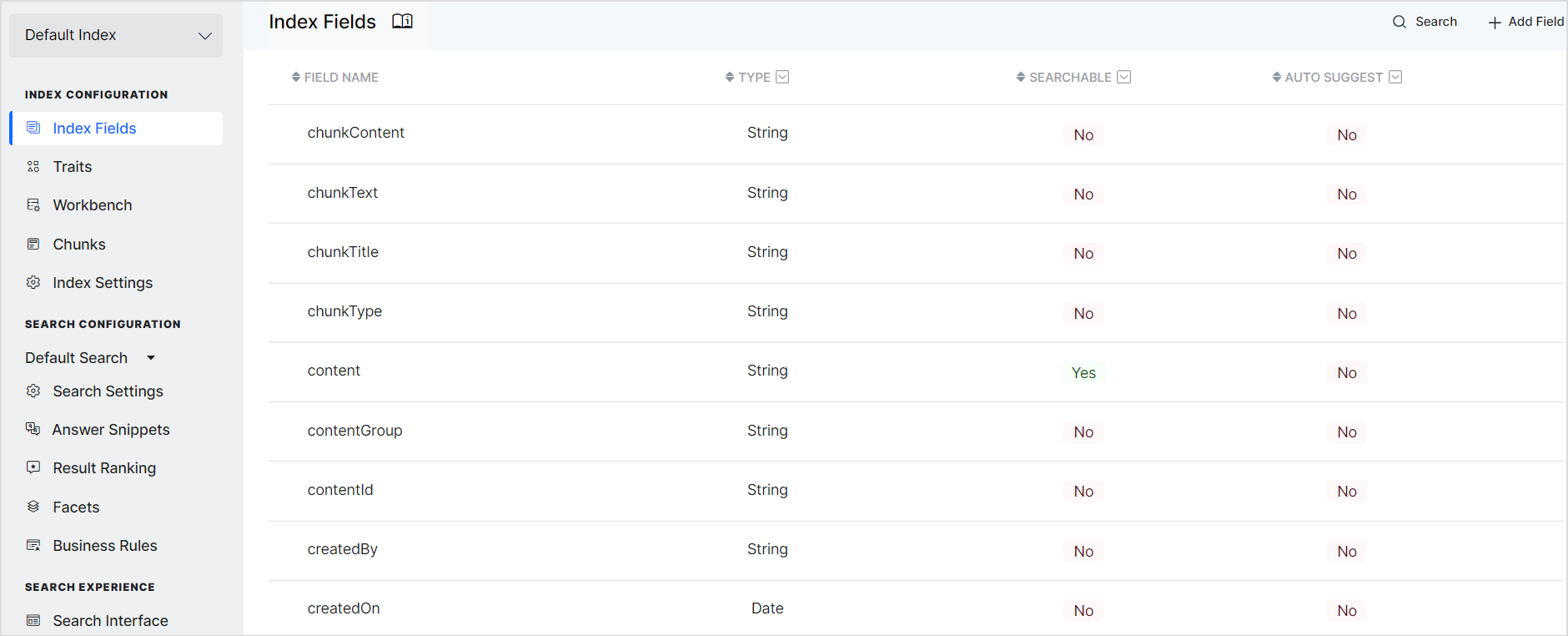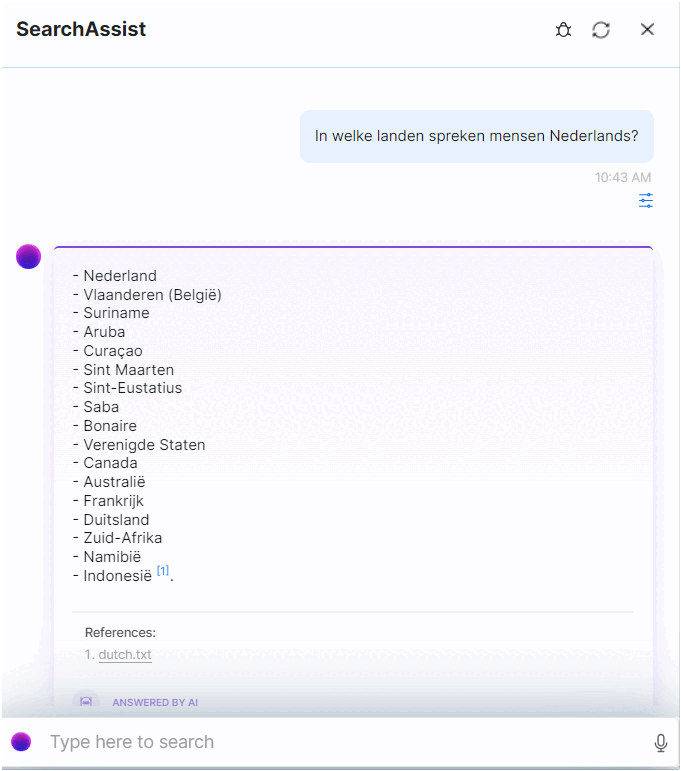v2.4.0 – December 3, 2024
SearchAssist 2.4.0 focuses on enhancing Connector support. This update introduces a new Custom Connector and provides advanced filtering options for ServiceNow. It also allows for the ingestion of content from attachments in the Confluence Server and includes comprehensive connector ingestion logs. These features are designed to improve flexibility and facilitate troubleshooting of content ingestion from different connectors.
Support for Custom Connector
SearchAssist now supports content ingestion from any application using the Custom Content Connector. This connector utilizes the application’s REST APIs to ingest content facilitated through the Custom Connector Service. Additionally, Search AI enables access control for content ingested via the Custom Connector, ensuring secure access. This feature enhances flexibility by seamlessly integrating various applications, even without pre-built connectors.
Advanced Filters for ServiceNow Connector
SearchAssist now supports advanced content filtering within the ServiceNow connector, enabling users to refine the scope of ingested data from the repositories. This functionality allows administrators to apply specific criteria to select only relevant records or knowledge articles to make searchable. By filtering content based on attributes like status, category, and custom fields, organizations can tailor search responses to meet specific user needs, improving search accuracy.
Ingesting Documents with Attachments in the Confluence Server
SearchAssist now supports ingesting Confluence Server documents with attachments, streamlining content indexing and retrieval. Users can include documents as attachments with Confluence knowledge articles. The content from the articles and the attachments is searchable and accessible, enhancing content discoverability and maximizing the accessibility of embedded knowledge.
Connector Content Ingestion logs
SearchAssist now offers comprehensive logs for monitoring the ingestion status of files from connectors. These logs are organized into tabs that categorize files as successfully ingested, failed, or skipped. For failed or skipped ingestions, the logs include detailed error information and possible reasons for the failure, enabling efficient troubleshooting and issue resolution.
v2.3.0 – October 9, 2024
SearchAssist v2.3.0 introduces Kerberos-SPNEGO authentication for custom LLM integration, along with enhanced API support for retrieving custom content and finer control over chunk size in rule-based content extraction.
Kerberos Authentication for Custom LLM Integration
SearchAssist now supports Kerberos-SPNEGO authentication for seamless integration with custom Large Language Models (LLM), in addition to the existing authentication mechanisms. This enhancement ensures more secure and flexible integration with enterprise environments that utilize Kerberos for authentication, improving compatibility with secure systems.
Retrieve Chunk Metadata using Search APIs
This enhancement to the Full Search and Advanced Search APIs allows users to specify and include custom metadata fields in the generated search results and answers. The API response can now be customized to fetch user-defined metadata fields for each chunk in addition to the default fields, providing a more customized and detailed output.
Custom Character Length for Rule-Based Content Extraction
SearchAssist allows users to set a custom minimum chunk size for rule-based content extraction. This enhancement provides greater flexibility in identifying and extracting shorter, yet potentially significant, pieces of content. Users can now fine-tune the extraction process to better suit their specific content needs.
v2.2.0 – August 31, 2024
SearchAssist v2.2.0 introduces new features to meet evolving needs, including improved analytics, search accuracy, access control, debugging, and customization options.
Enhanced Analytics Capabilities
SearchAssist now allows users to export analytics data through APIs. Additionally, analytics data now captures user identity information, enabling the grouping and analysis of data by userId. This enhancement provides deeper insights into user behaviors and interactions, allowing for more targeted and effective data-driven decisions.
Support for BGE-M3 model
SearchAssist v2.2.0 now supports the fine-tuned BGE-M3 model for generating embeddings. This new integration significantly enhances search accuracy and efficiency, delivering more relevant and precise search outcomes. This model is optimized to better understand and interpret multilingual user queries.
RACL support for Confluence Cloud and SharePoint
With this update, SearchAssist extends Role-Based Access Control List (RACL) support to content ingested from Confluence Cloud and SharePoint connectors. This enhancement ensures that sensitive content remains secure and that data access is properly managed in accordance with the access policies.
Improved Usage logs
With SearchASsist v2.2.0, usage logs are enhanced to offer more visibility into all the app’s requests and responses. This improvement is particularly beneficial for debugging and understanding query patterns, offering developers and administrators greater insight into application performance and user interactions.
Custom Embedding Dimensions
This version introduces support for an advanced configuration that allows custom embedding dimensions to be set for use with custom vector generation models. It allows for greater flexibility in processing and representing data. Users can now tailor embedding dimensions to suit their specific models.
V2.1.0 – July 27, 2024
SearchAssist v2.1.0 introduces new features to enhance the application’s usability and capabilities. Listed below are the major enhancements from the release.
User Role Management
SearchAssist now introduces a User Role Management system to provide tailored access based on user roles, improving both security and ease of use. With this new functionality, specific roles can be assigned to users that govern the level of access and permissions the user has within the application.
Enable Disable one-time URLs
SearchAssist now allows enabling or disabling one-time use URLs for reference links shared in search results and answers. This feature allows users to control the availability of these URLs, ensuring enhanced security for sensitive references or maintaining persistent access, depending on the specific needs.
Support for GPT4o
The latest release introduces support for OpenAI’s GPT-4o model. With GPT-4o, users can expect more precise results, better handling of nuanced language, and more intelligent conversational experiences.
SharePoint Filters
Users can now apply filters to select specific types of content from SharePoint Sites using the SharePoint connector, enabling more precise and efficient content retrieval.
V2.0.5 – July 13, 2024
SearchAssist 2.0.5 focusses on bug fixes and improving overall performance and stability of the application.
V2.0.4 – June 29, 2024
SearchAssist v2.0.4 introduces enhanced content filtering through Salesforce and Confluence connectors, APIs for historical search data and user group associations, training for timely indexing of web content, and Azure authentication support for Confluence Server. In addition, the release also incorporates bug fixes and enhancements to improve overall performance and functionality.
Extended Support for Content Filtering through connectors
SearchAssist now extends content filtering support for Salesforce, Confluence Cloud, and Confluence Server connectors. This allows you to ingest and index relevant content, improving the overall search performance and efficiency.
Public API for fetching Historical Search Results and Answers
SearchAssist exposes an API that allows you to get historical search results and answers for one or more search requests. This feature can be particularly useful for analyzing search trends, gaining insights into user behavior over time, and making suitable enhancements.
Incremental Training for Web Page Content
Scheduled web crawls now initiate training immediately after crawling is completed. This ensures the ingested data is promptly indexed, providing the most up-to-date information in search results and answers.
Public API for Associating Users with User Groups and Mailing Lists
The new API allows you to associate users with specific user groups or mailing lists. This feature helps SearchAssist identify which users are permitted to access content enabled for particular user groups, ensuring secure and tailored access to relevant information.
Support for Azure authentication with Confluence Server
You can now connect to your Confluence Server using your Microsoft Entra ID. This integration provides enhanced security and flexibility, allowing seamless authentication and access management with your existing Azure credentials.
Email Notifications
SearchAssist now supports email notifications for background actions such as scheduled content ingestion from connectors, web crawling, and application training, ensuring timely updates and status alerts to the application owners and other stakeholders.
V2.0.3 – May 25, 2024
SearchAssist v2.0.3 introduces features and enhancements designed to improve language support, customization options, and access control for the content.
Dutch and Italian Language Support
SearchAssist now supports Italian and Dutch languages along with other existing languages for both Answers and Search Results.
User Permissions Management for Google Drive Content(Beta)
SearchAssist now automatically retrieves and manages user permissions for content ingested from Google Drive and allows you to implement access control. By leveraging existing permissions, SearchAssist reduces the risk of unauthorized access, ensures compliance with data access policies, and provides a streamlined and secure experience for users.
V2.0.2 – May 11, 2024
SearchAssist 2.0.2 introduces public APIs to work with Chunks extracted from the source content. The APIs allow you to view and update chunks as needed, enhancing your workflow efficiency. Additionally, this release addresses several critical functionality and security-related issues, ensuring a smoother and more secure user experience.
V2.0.1 – April 19, 2024
SearchAssist 2.0.1 introduces enhancements like Turkish language support, content filtering through Azure and Confluence connectors, and the addition of a public API for user feedback. Additionally, there are upgrades to Answer Insights and the Advanced Search API, offering users more detailed information and improved filtering options. Change logs are also available as a beta feature for tracking application updates.
Turkish Language Support
SearchAssist has expanded its language capabilities to include Turkish, alongside existing language options, enabling users to receive answers and search results in Turkish, enhancing accessibility and usability for a broader user base.
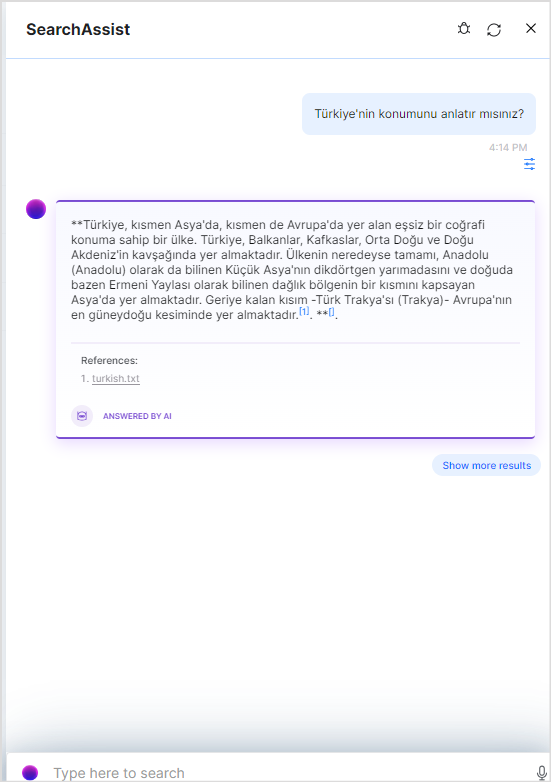
Content Filtering through Azure and Confluence Connectors
Enhance your content management capabilities with precise control over content ingestion from various sources. With the latest update, you can selectively ingest and index specific content from Azure Storage, Confluence Server, and Confluence Cloud. This ensures a more efficient and streamlined indexing process, focusing only on the most relevant content. 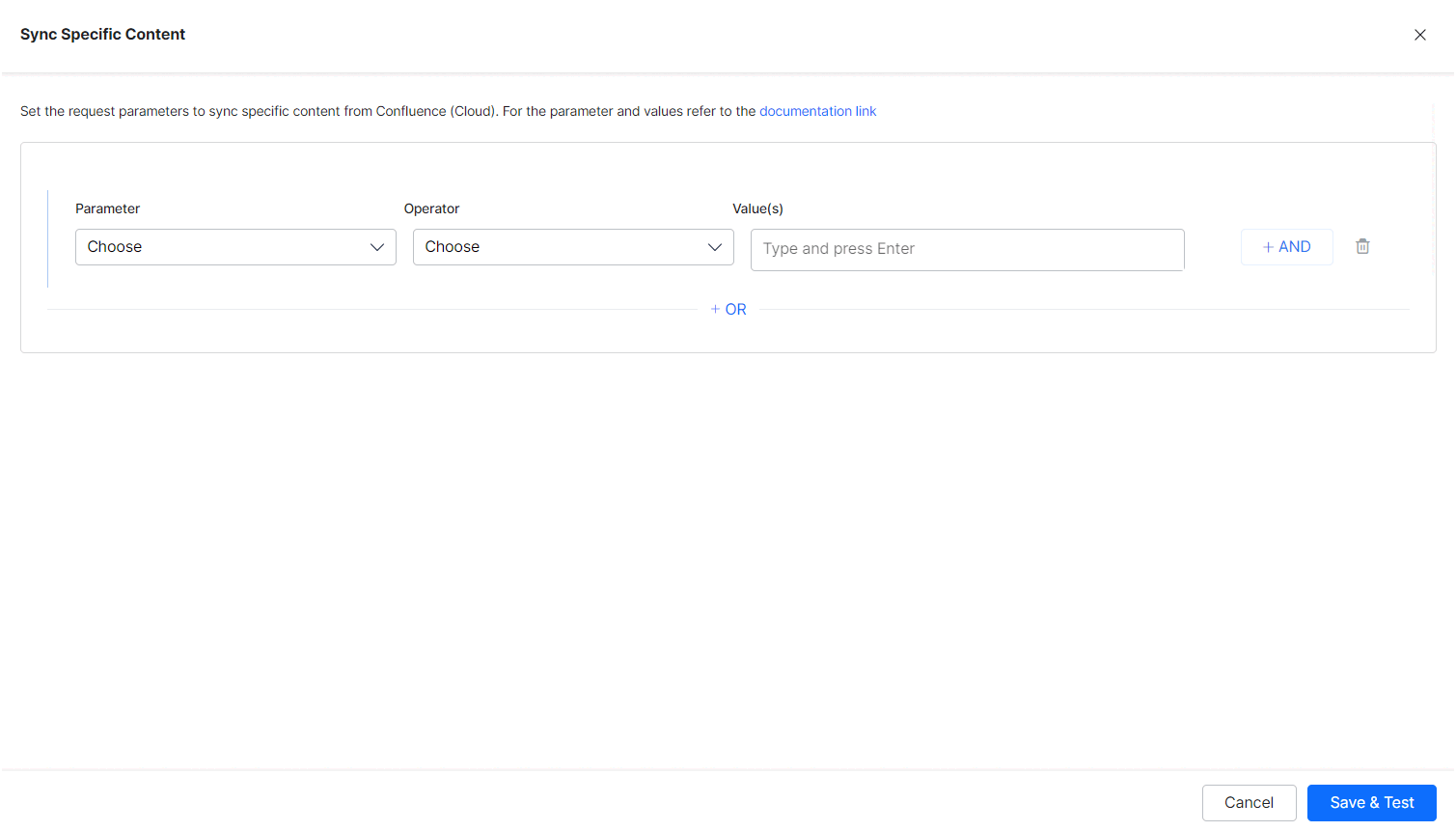
Public API for Feedback
The latest version of SearchAssist introduces a public API for ingesting user Feedback back to the application. For the SDK users, this feature provides crucial insights that can be leveraged to refine and enhance search results and answers, ensuring an optimized and tailored user experience.
Enhancements to Answer Insights
With this release, Answer Insights will have more detailed information for you to understand user queries and the corresponding answer generation process. For each query and the corresponding answer generated, the Answer Insights now includes debugging information such as qualified chunks, chunks utilized for answer generation, and the request and response parameters used for interaction with the LLM. This enhanced visibility offers deeper insights into the answer-generation process, facilitating effective optimization and refinement. 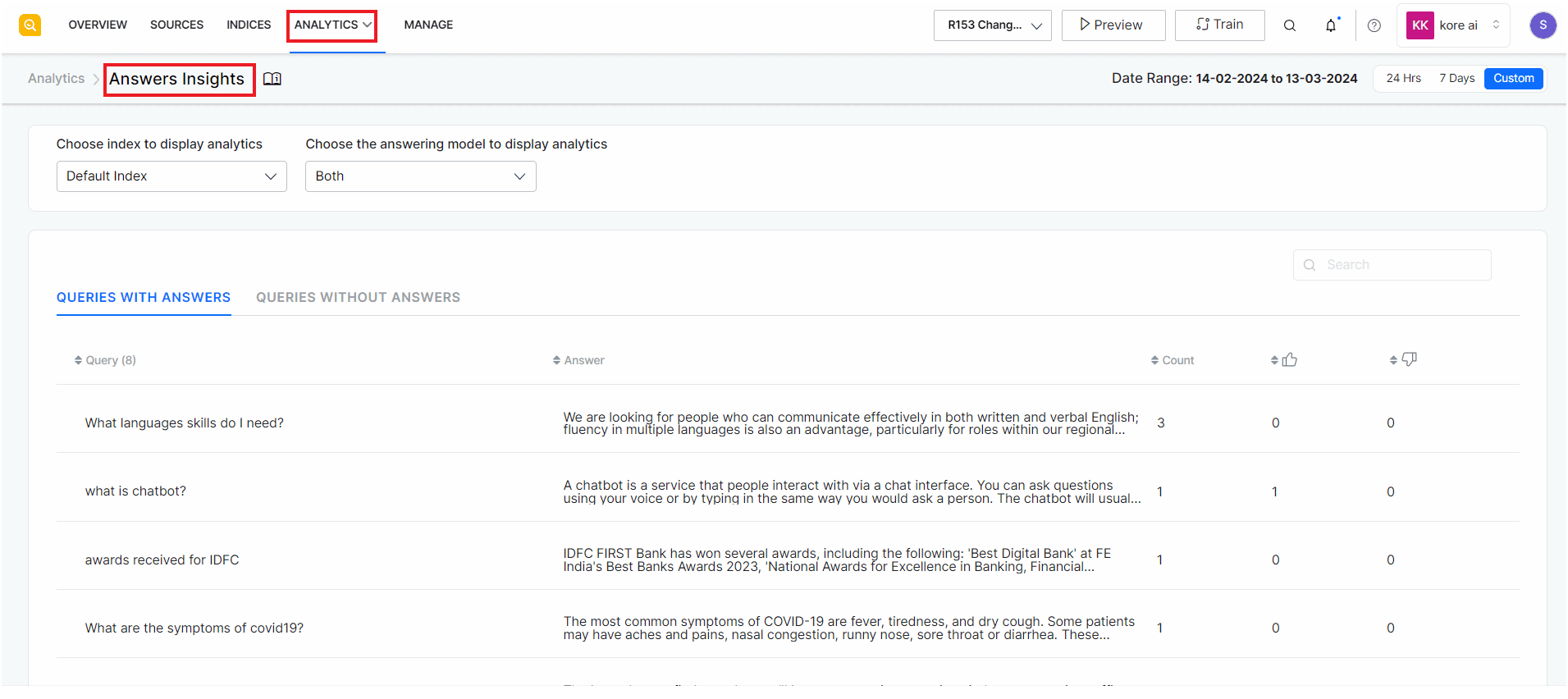
Enhancements to Advanced Search API
With the introduction of separate meta filters for Answers, you can now use the API to filter answers based on any of the chunk fields. This enhancement enables customization of answers to align with your specific requirements. Separate filters for answers and search results also give you a higher degree of flexibility for personalization.
Change Logs (Currently Beta)
Monitor and review the changes made to your application using the Change Log feature. The Change Log provides a record of changes, promoting accountability, collaboration, and informed decision-making within the development team. 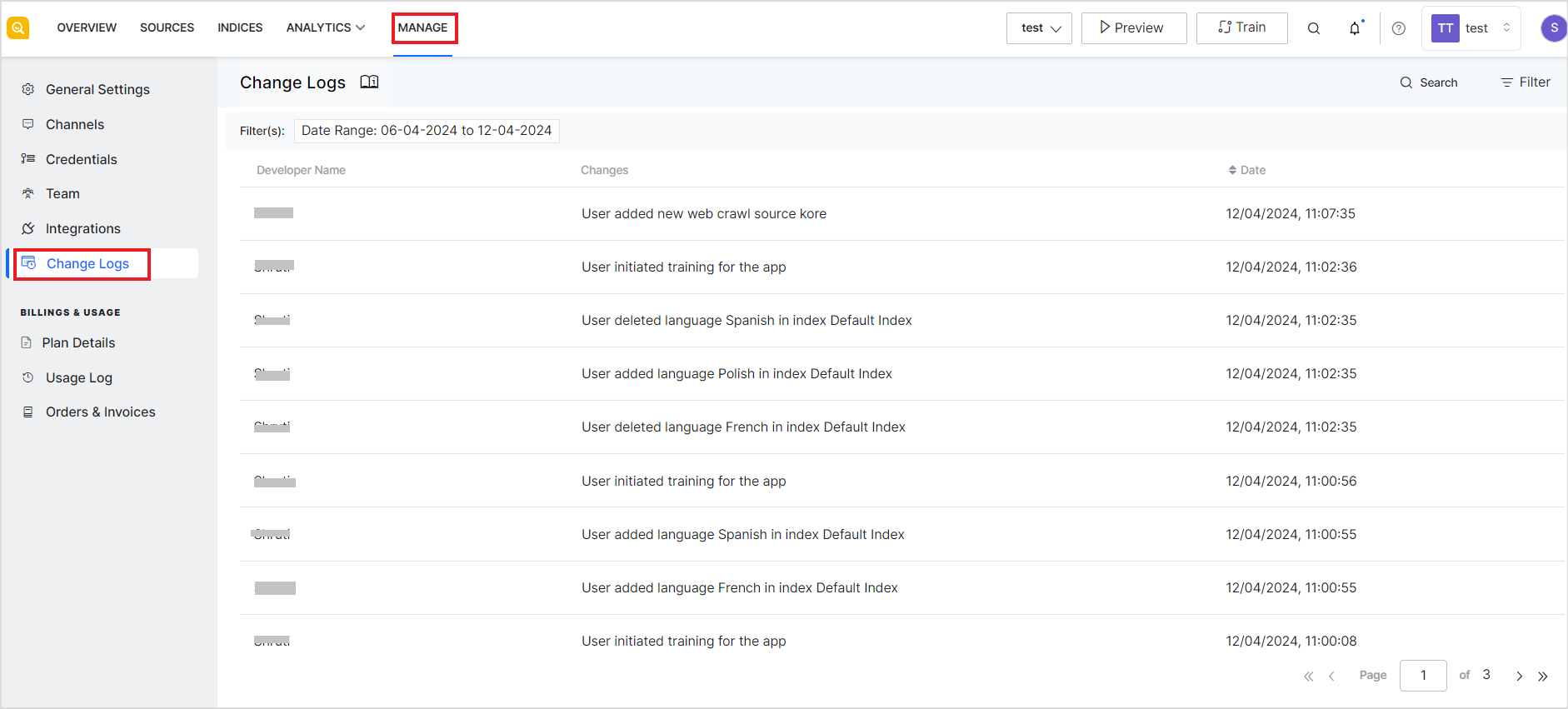
V2.0 – March 24, 2024
SearchAssist v2.0 focuses on providing greater versatility, visibility, and control across various aspects. From expanding language support to introducing advanced API capabilities and content filtering options, the latest version has features that will empower you to design more efficient applications.
Indonesian Language Support
SearchAssist now supports the Indonesian language along with other existing languages for both Answers as well as Search Results. Learn More. 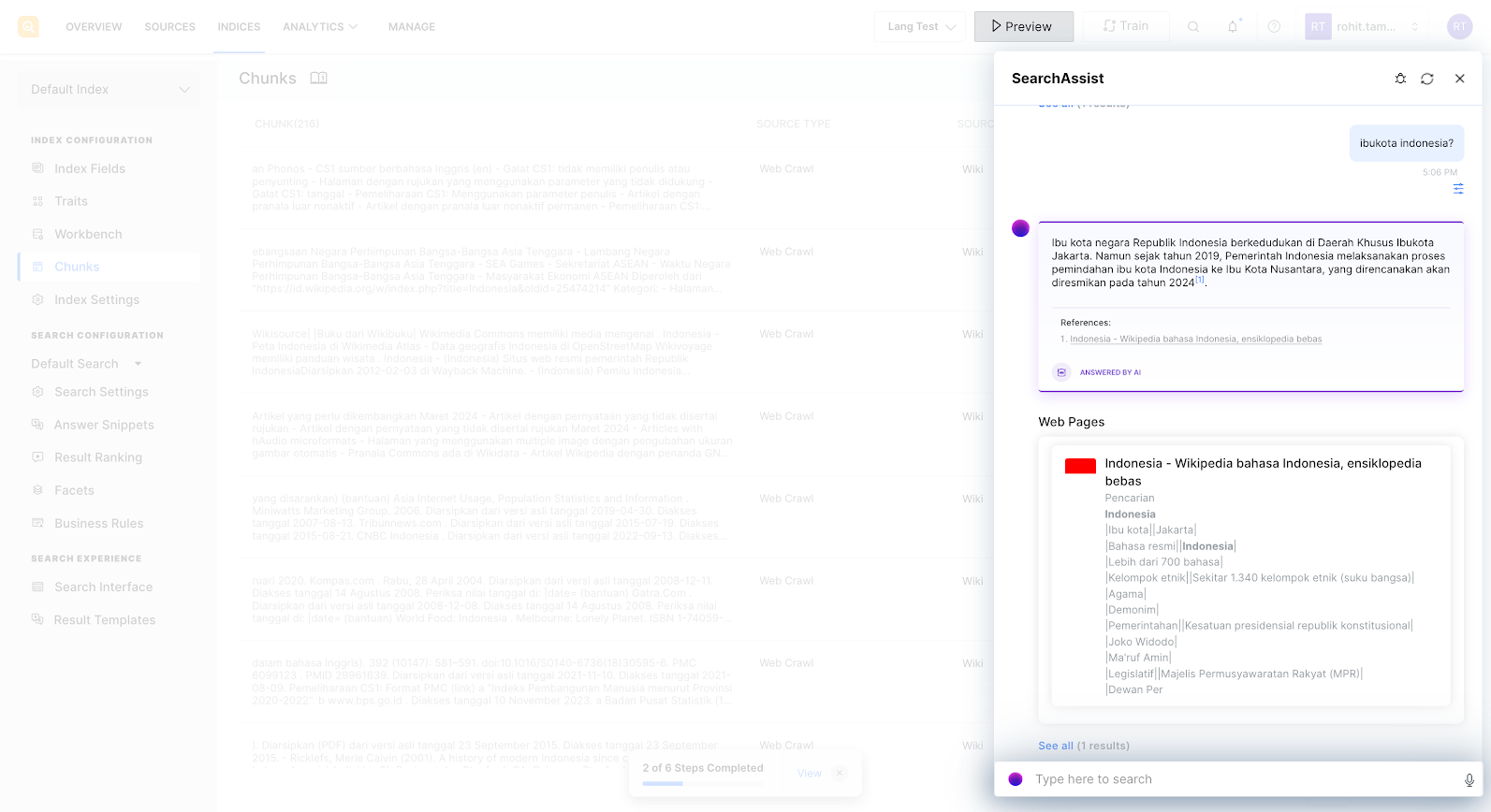
View Web Crawl Error Messages in UI
With this release, SearchAssist helps you to easily identify the reasons behind web crawl failures, making troubleshooting and resolving such issues simpler and straightforward. 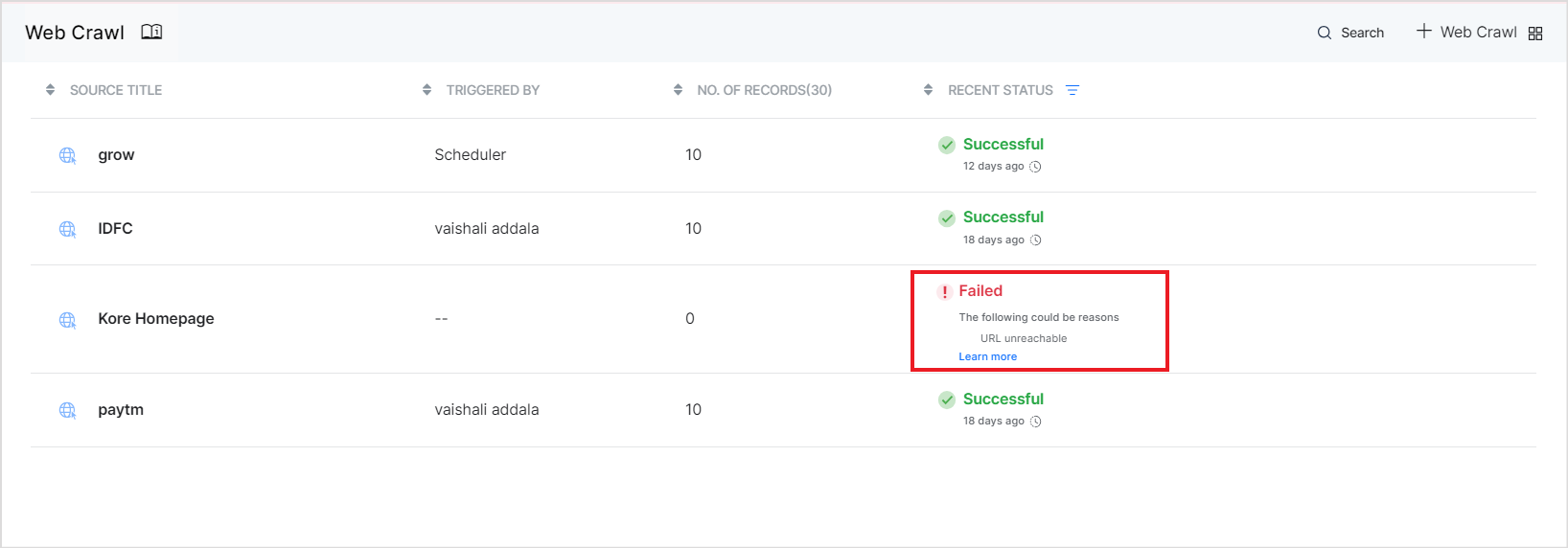
Public API for Retrieving Debug Information
Gain valuable insights into your search results and answers with the new public API to retrieve debug information. This API allows you to understand why specific results are returned and how you can optimize them for enhanced performance. Learn More.
AdvancedSearch Public API enhancement for Chunk Retrieval
Along with the answer, you can now retrieve the qualified chunks for a given user query using the AdvancedSearch public API. This enhancement provides deeper visibility into the context and sources behind the responses and an improved understanding of the response. Learn More.
Chunk Filtering
With this release, the Chunk Browser is enhanced to allow you to selectively view the chunks. Chunk filtering options allow you to easily and efficiently locate chunks based on specific criteria such as their source, type, or content. Learn More. 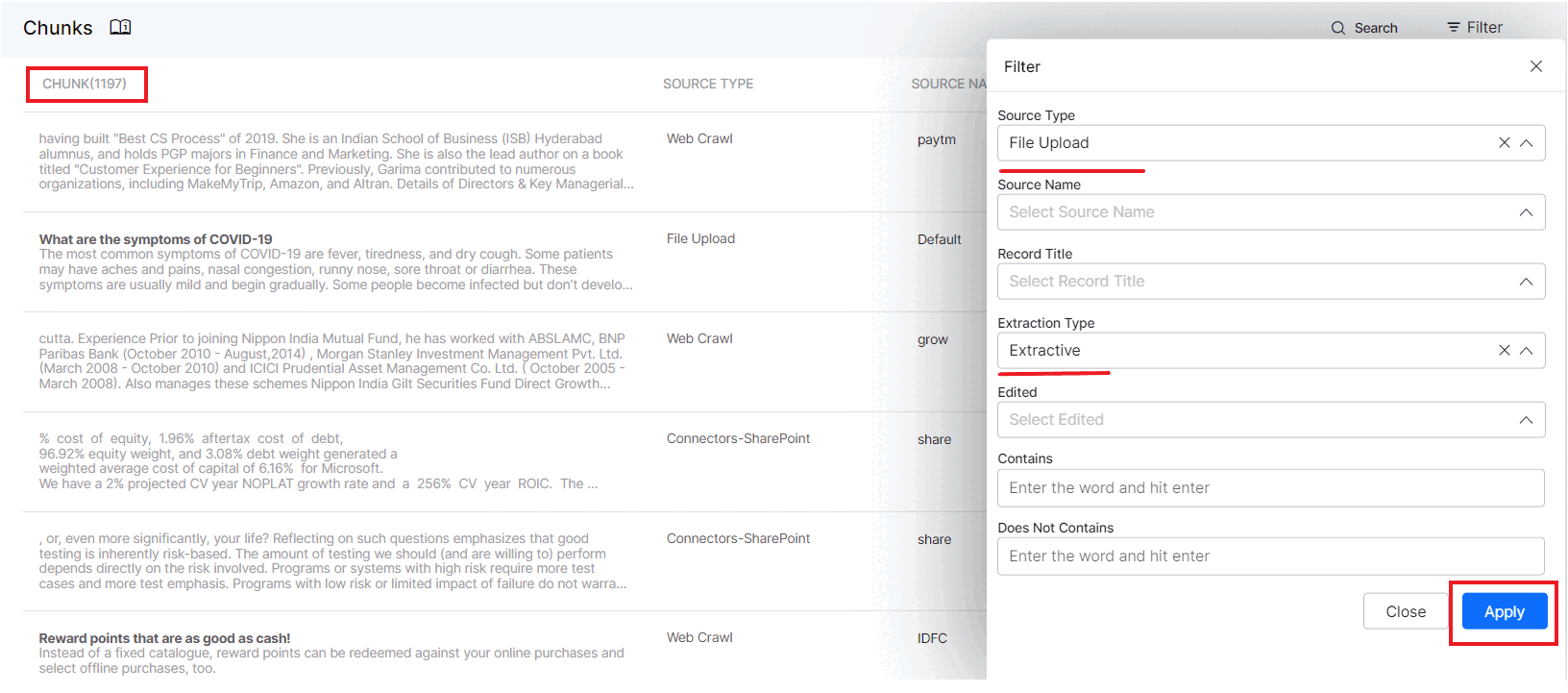
Support for multiple models of LLMs
SearchAssist now offers you the flexibility to choose and select the LLM model best suited to your specific needs. Choose your preferred model like GPT-3.5 Turbo, or GPT-4, and ensure the performance and productivity of your application. 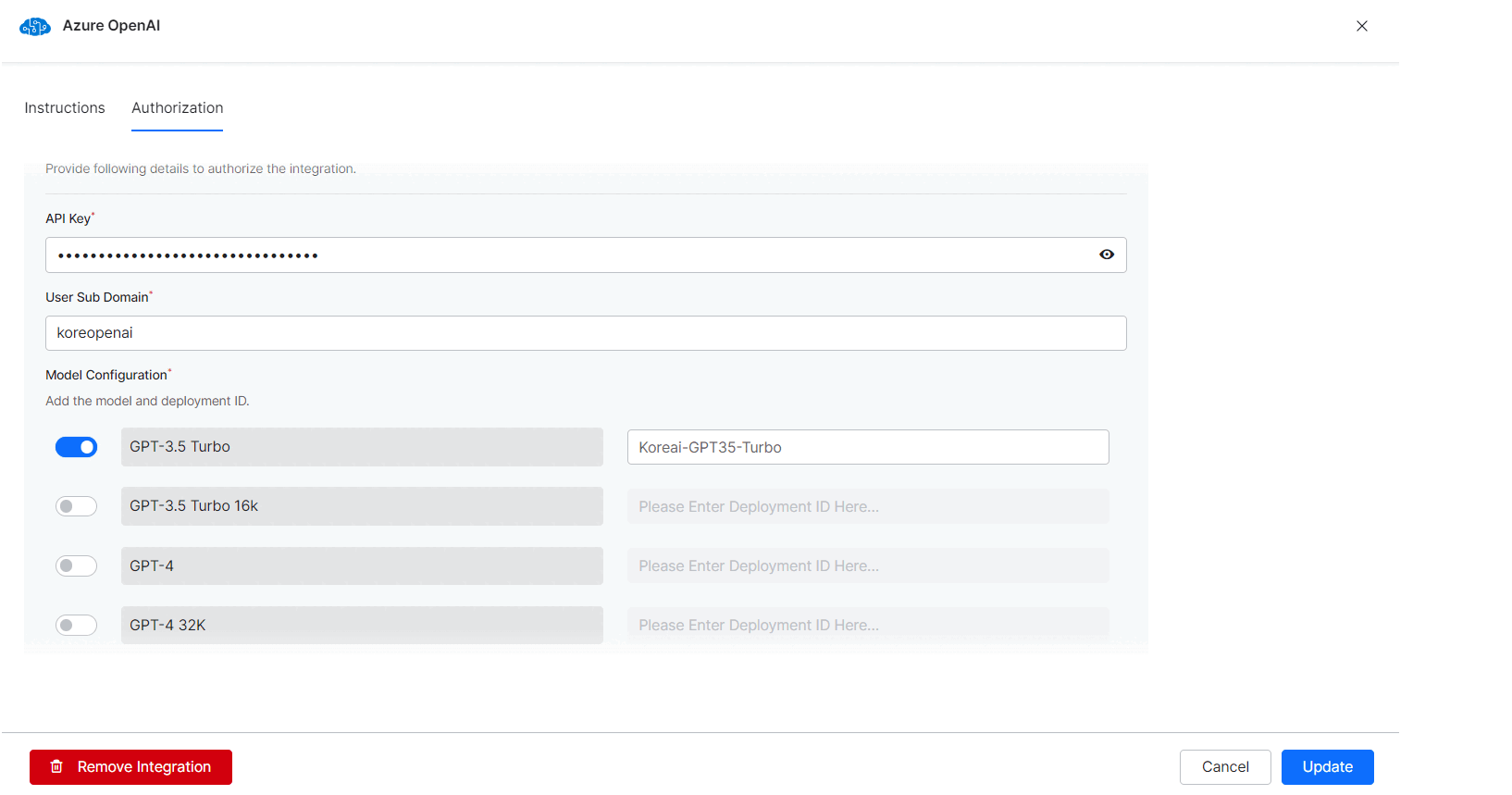
Content Filtering in Google Drive
Gain granular control over the content ingestion from Google Drive. Selectively ingest and index specific Google Drive content, ensuring efficient and streamlined indexing of only the relevant content. Learn More. 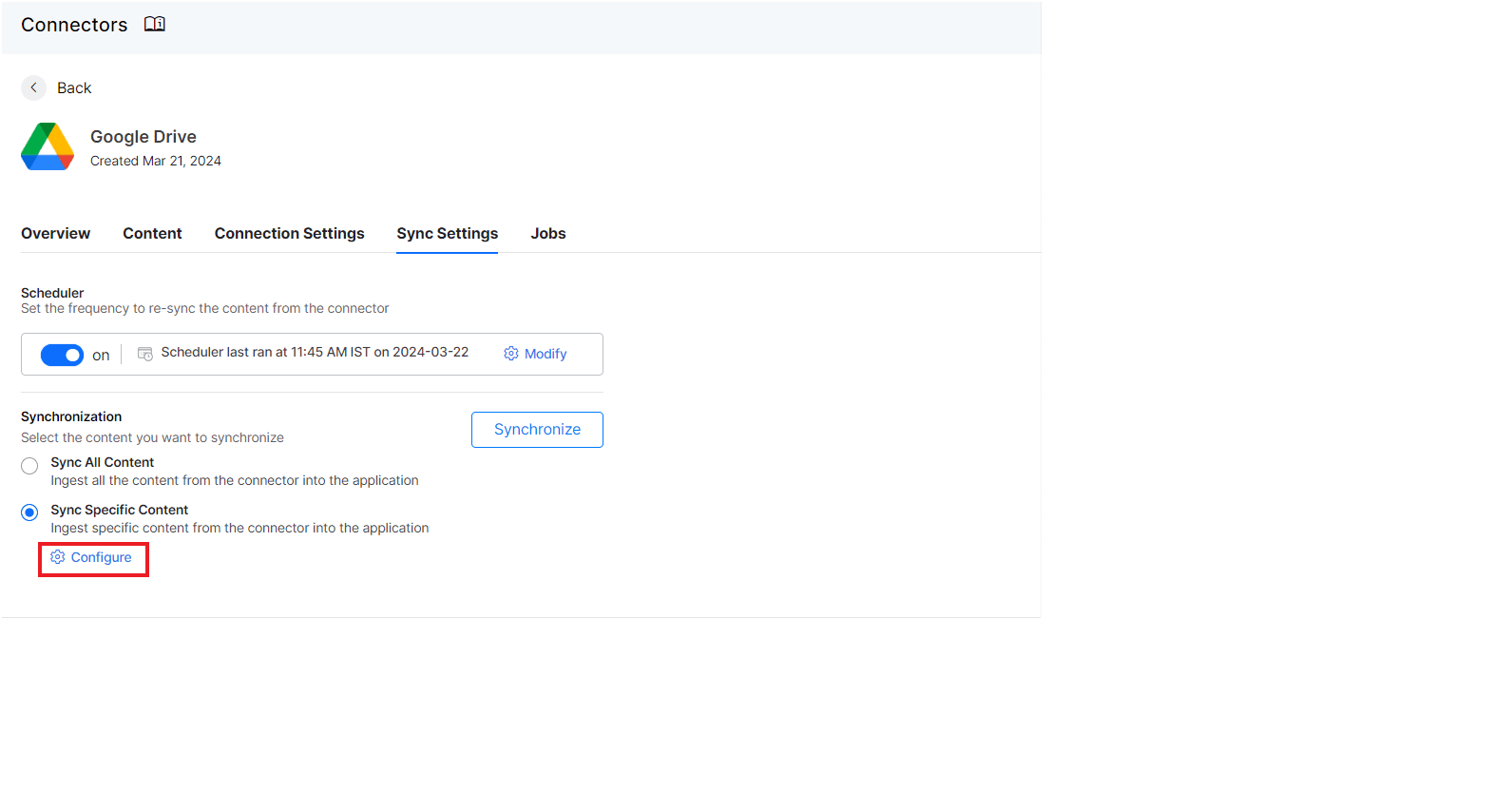
Single-Use URLs for Search Results and Answers
Enhance data security with the latest Single-Use URL feature, available in both search results and answers. The URLs in the response provide a one-time access mechanism, reinforcing security and confidentiality over sensitive content by limiting access to a single use.
Similarity score for generative answers
Gain more control over the answer generation process using the Similarity score parameter that allows you to set a threshold for qualifying chunks and thereby, control the accuracy and precision of the generated answers. Learn More. 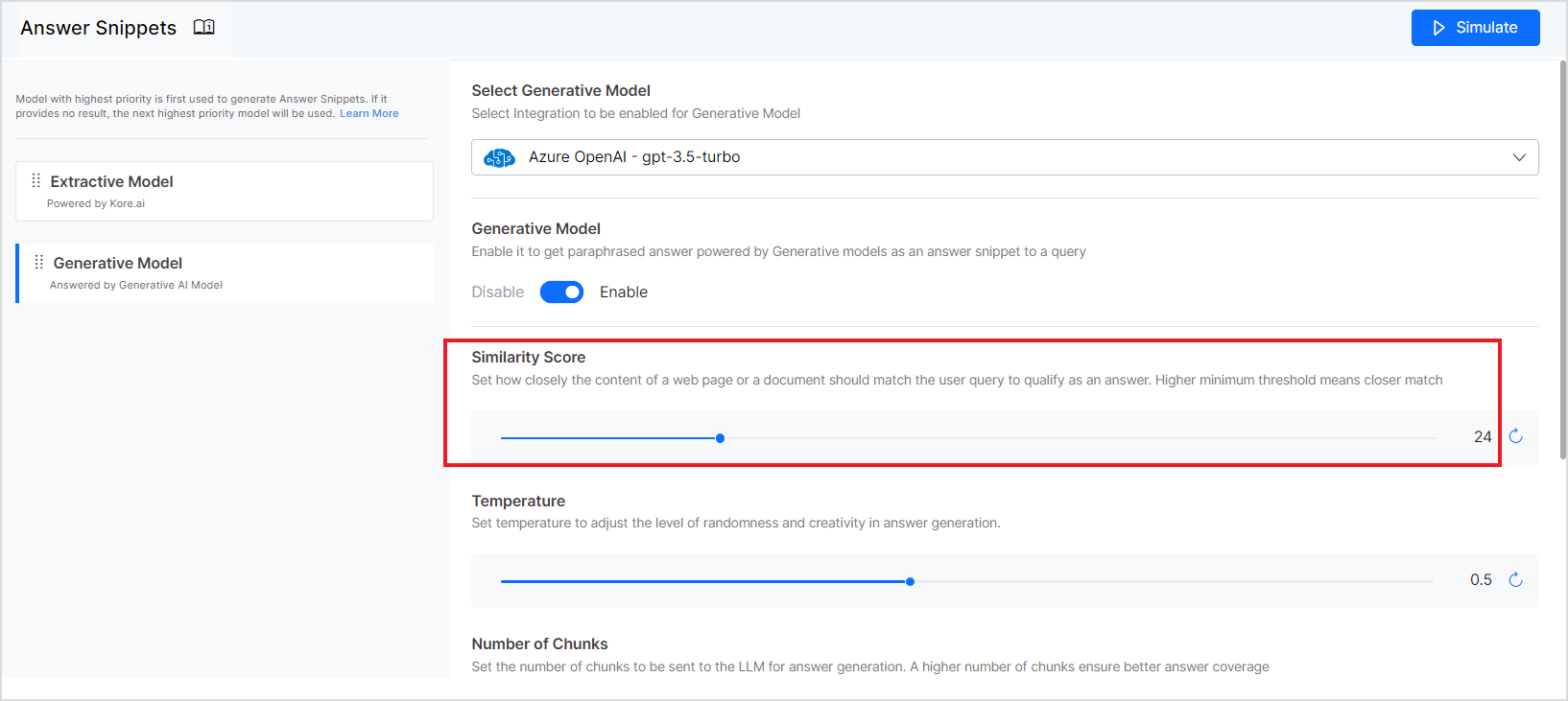
Chunk fields as predefined index fields
Gain valuable insights into how SearchAssist indexes data for answers using the Chunk-related Index fields. You can now view all the predefined fields used to store the content and retrieve answers efficiently. 